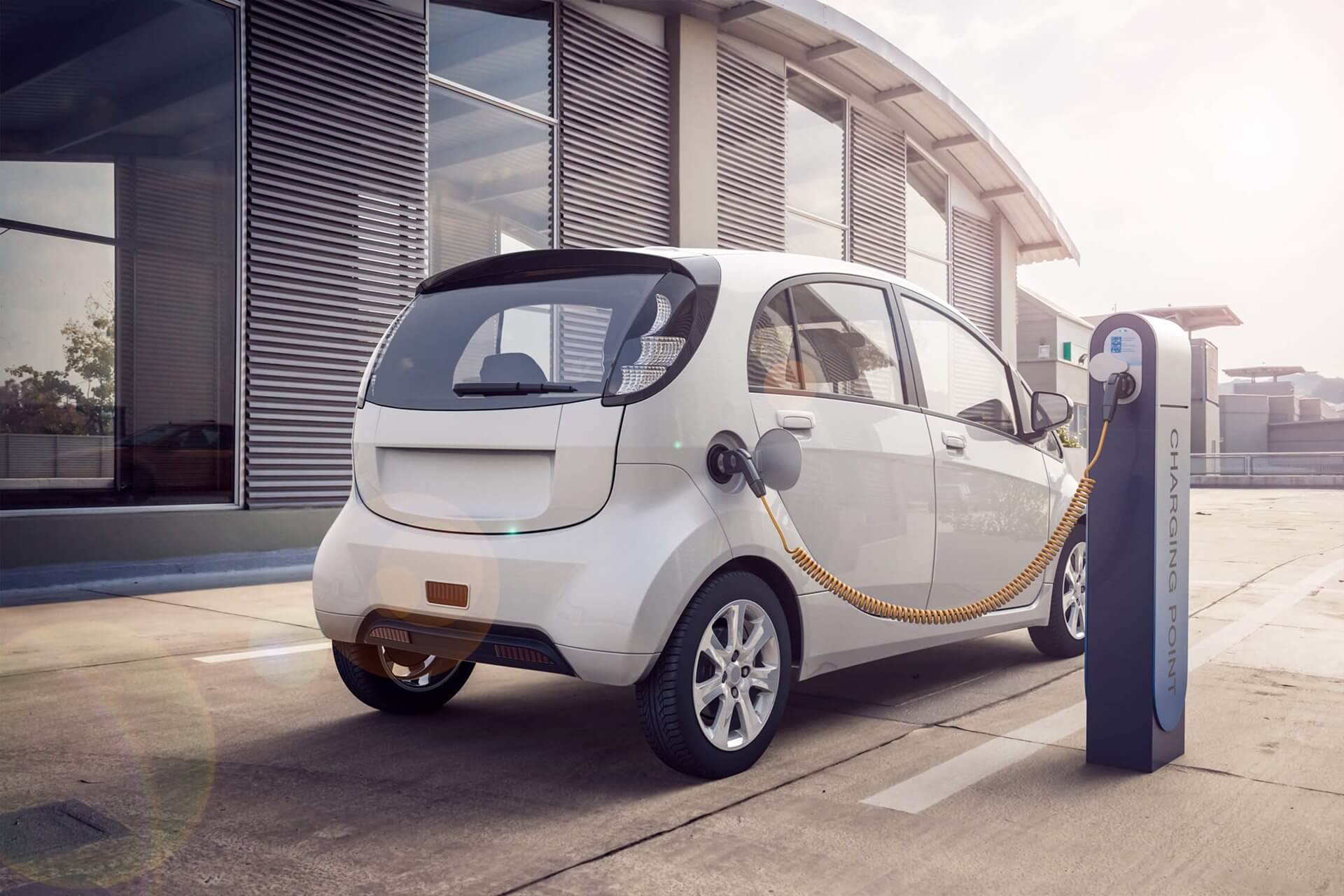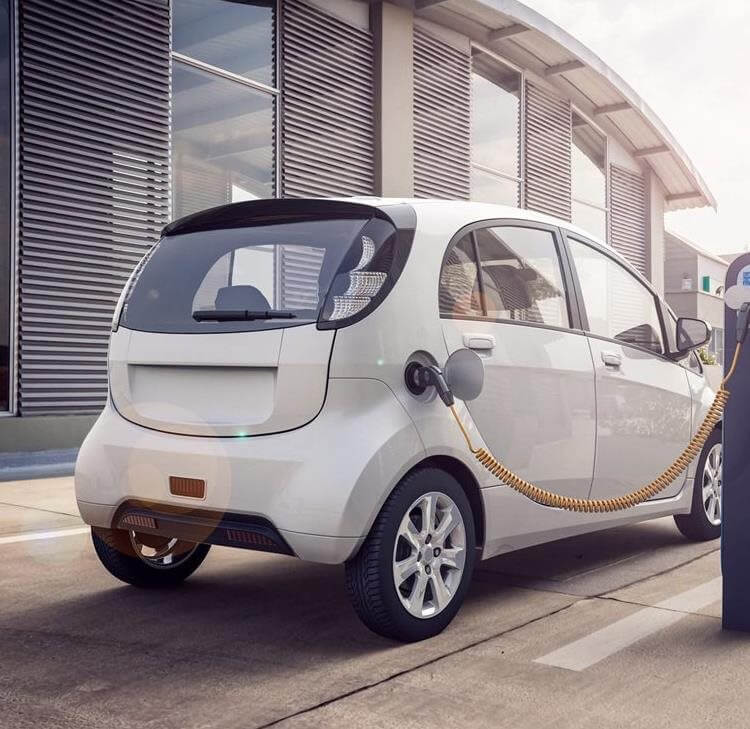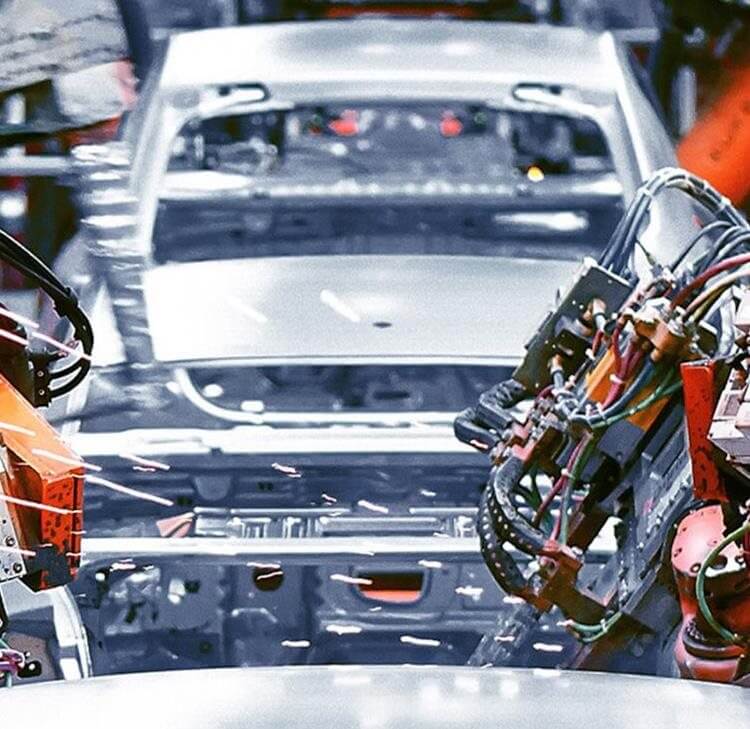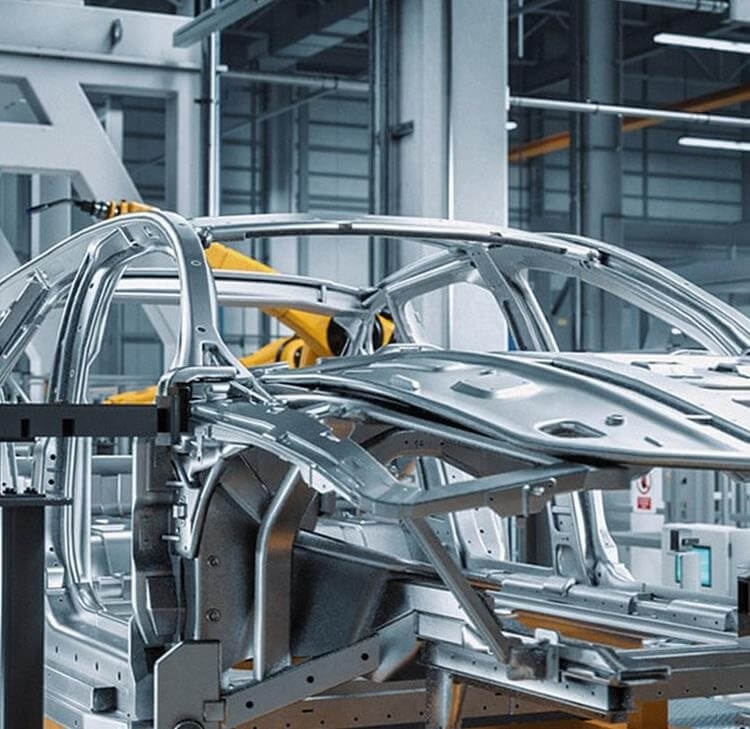The automotive industry in the UK is at a pivotal crossroads as we leave 2024 behind and look ahead to 2025, with significant events and legislative changes on the horizon, industry stakeholders are bracing for challenges that could reshape the landscape of automotive manufacturing and sales.
In this article, we delve into the key events of 2024, the public’s perception of electric vehicles (EV) and the anticipated challenges and legislative impacts for 2025.
Public perception and readiness for EV Transition in the UK
Despite the government's concerted efforts to transition towards EVs and a net zero motor industry, public sentiment remains sceptical about the readiness for such a shift. A revealing survey carried out by Quotezone.co.uk in January 2025 indicates a significant apprehension among UK drivers regarding the EV transition. An overwhelming 90% of 1,000 respondents believe that the UK infrastructure is not adequately prepared for a full-scale EV adoption, whilst 79% consider the Zero Emission Vehicle (ZEV) Mandate 2035 deadline for banning petrol and diesel vehicles as premature, and that 57% of UK motorists have no immediate plans to switch to an EV. Specifically, the ZEV Mandate requires that “80% of new cars and 70% of vans required to be zero-emission by 2030, rising to 100% by 2035” according to the government’s pathway to ZEV.
The survey explored attitudes towards the adoption of EVs, the preparedness of the UK’s infrastructure, and the incentives needed to encourage a switch from traditional fuel vehicles to electric alternatives. Despite a record increase in EV sales in 2024, with 382,000 units sold marking a 21% rise from the previous year, EVs still only account for approximately 2.7% of all vehicles in use on UK roads (as at April 2024).
While the UK government has increased the number of charging points by 38% over the past year and aims to install 300,000 public charging stations by 2030, concerns about EV mileage, maintenance costs, and resale values persist. The cessation of road tax exemptions for EVs in April 2025 and the conclusion of the Plug-In Car Grant in June 2022 have also impacted public perception, although other grants like the Electric Vehicle Chargepoint Grant for renters and flat owners are still available.
Overall, this reluctance of potential EV motorists combined with the lack of financial incentives to make the transition to EV is compounded by concerns over the cost of EVs and the scarcity of public charging facilities, with 16% of respondents in the Quotezone survey highlighting these as major deterrents.
EV industry stakeholders will need to not only focus on shoring up the public’s confidence in the efficacy of EVs, but they will also have to navigate the stringent regulatory changes in the UK, which we provide an overview of below.
Reflecting on 2024 and considering the challenges on the horizon in 2025 for the UK EV market
2024 was marked by significant milestones and hurdles for the UK automotive industry, particularly highlighted by the implementation of the ZEV Mandate. This ambitious policy aimed to accelerate the transition to net-zero emissions, placing the UK at the forefront of global efforts to combat climate change.
The introduction of the ZEV Mandate brought about profound economic impacts. One of the most notable was the closure of the historic Vauxhall factory in Luton, which was a significant blow to the local economy and a stark indicator of the costly nature of transitioning to net zero. The journey towards EV adoption in the UK has not only been marked by economic and market-driven challenges due to consumer scepticism and range anxiety, but also by pertinent internal corporate conflicts, as illustrated by the recent upheaval at Stellantis in December 2024 following the closure in Luton, manifested by the resignation of CEO Carlos Taveres on 1 December 2024. Overall, this C-suite shuffle sheds light on the complexities of corporate governance during times of major industry shifts, such as the current transition to net zero catalysed by government-led initiatives such as the ZEV Mandate.
This corporate shift at Stellantis highlights the issues concerning corporate governance and company stewardship with respect to the ZEV mandate but, in any case, there are significant financial pressures as well. For instance, despite billions being invested into the industry’s transition to net zero, demand remains low. The shear costs of the investment combined with the heavy EV discounting to meet the stringent demands of the ZEV Mandate has risen above £4 billion, which is not commercially viable.
Demand for EVs needs to rise dramatically in the UK for the automotive industry to strengthen alongside decarbonisation. Looking to 2025, industry leaders will be eagerly awaiting potential ‘flexibility’ changes to the ZEV Mandate following the Government’s Christmas Eve press release and lawmakers will need to consider how best to incentivise demand whilst encouraging further UK investment and innovation.
Legislation in 2025 Impacting the EV Automotive Industry
The legislative landscape in 2025 is set to introduce new dynamics into the automotive industry, particularly with the enactment of the Automated Vehicles Act 2024 (the Act). Whilst most of the Act is not yet in force until certain Secondary Legislation has been enacted, the Act is set to significantly influence the industry and establish a legal framework for automated vehicles. As a consequence, the Act will impact automated vehicle manufacturers, designers, software developers, and others involved with self-driving vehicles, imposing stringent obligations and restrictions that these industry stakeholders will need to pay close attention to.
As the automotive industry continues to evolve, the focus on decarbonisation and automation will likely be the driving forces shaping its future. The regulatory frameworks encompassing 2024, such as the ZEV Mandate, and the legislation coming to the fore in 2025, such as the Act, will all play a crucial role in steering the industry towards these new technological and environmental paradigms. EV industry stakeholders will need to align their business models to this undulating legal landscape.
Ultimately, 2025 is set to be transformative for the UK automotive industry and the ability of the industry to navigate these changes successfully will be instrumental in shaping its trajectory towards not only a more sustainable and technologically advanced future, but also a commercially successful one.
Concluding remarks
As we assess the challenges and developments within the UK automotive industry, particularly the EV sector, it's evident that the industry faces a complex transformation. Public reluctance due to infrastructure and financial concerns, combined with significant corporate and legislative shifts, highlights the multifaceted challenges ahead as we approach 2025.
Browne Jacobson is on hand to support our automotive clients through these challenges through strategic guidance on compliance with evolving regulations like the ZEV Mandate and the Automated Vehicles Act 2024. Our expertise is crucial in navigating these changes, facilitating corporate governance and company stewardship towards the net zero transition, and structuring contracts that reflect the new realities of the EV market. More specifically, our cross-sector experts can advise on:
- the ownership of the Intellectual Property that manifests from industry stakeholder designs and new technologies in the EV space;
- regulatory compliance with the legislative landscape in the EV market (such as the Act and ZEV Mandate);
- securing available funding for the purposes of Research & Development and other accreditations or certificates from both public sector grants and private sector financing; and
- property-related advice, such as planning permission, in securing real estate for EV charge points.
In conclusion, the journey towards a sustainable and technologically advanced automotive industry is fraught with challenges but also rich with opportunities. As legal advisors, our role is to provide insightful, proactive, commercial and strategic legal support to help our clients navigate this terrain. The year 2025 will undoubtedly be pivotal for EV and automotive stakeholders, and we will be on hand to provide guidance in steering the automotive industry towards a successful future in this new decarbonised landscape.
Key contact

Conor Macaire Duncan
Associate
conor.macaireduncan@brownejacobson.com
+44 (0)330 0452254
Discover more
Related expertise
You may be interested in...
Legal Update
US tariffs: Implications for the UK automotive sector and practical steps for businesses
Legal Update
Navigating the road ahead: Fate of the UK’s automotive EV market in 2025 and beyond
Legal Update
UK court clarifies copyright protection for "works of artistic craftsmanship"
Legal Update
The future of transportation: The UK's approach to automated vehicles
Press Release
Corporate sector: 2025 predictions
Legal Update
When roads diverge regulating autonomous vehicles: EU v UK approaches
Legal Update
Insurability by design: Increased transparency for vehicle manufacturers and insurers
Legal Update
Delivering EV charging infrastructure: The local government perspective
Guide
Guidance for manufacturers of EVs and HEVs in the UK: ASA's non-exhaustive electric vehicle advertising guidance
Legal Update
Changing lanes: Automated Vehicles Act 2024 becomes law
Legal Update
Update: Further debates on the Automated Vehicles Bill in the House of Lords this month
Legal Update
King’s Speech gives the green light for autonomous vehicles
Opinion
An Update on Autonomous Vehicles and the Transport Bill
Legal Update
The future of autonomous technology - August 2023
On-Demand
'Autonomous vehicles: what the future holds' on-demand
On-Demand
NSIA: the thorn in the side of M&A?
On-Demand
Automotive webinar - EV charging points: contractual and liability issues to be aware of
On-Demand
Automotive webinar - Grant Funding and Collaboration Agreements
In this session, we examined the legal framework around grant funded collaborations and discussed the key risks to be aware of, including IP ownership and compliance with grant terms.
On-Demand
Automotive webinar - Commercial Contracts
Published Article
The problematic transition to electric vehicles - what is the impact on manufacturing
It was reported in May 2022 that the BMW-owned manufacturer had been forced to put a temporary stop on the production of all manual transmission vehicles due to the global semi-conductor shortage and the war in Ukraine. Mini stated that the move was made in order to "ensure production stability".
Published Article
Rolls Royce SMR ambitions will bring Hinkley like benefits to regions
Rolls-Royce has shortlisted six locations for its first factory for small nuclear power stations. We look at the impact on regions & local businesses
Published Article
Hydrogen villages
First Hydrogen has identified 4 sites in the UK where it plans to locate large hydrogen refuelling stations for commercial vehicles. The sites will also accommodate on-site hydrogen production of between 20 and 40 MW (totalling 80 MW - 160 MW across all 4 locations) and will serve the urban areas of Greater Liverpool, Greater Manchester, London and the Thames Estuary. The plans form part of the Energy division’s strategy to develop green hydrogen production projects, initially in the UK and Canada.
Legal Update
The Omnibus Directive is almost here
Press Release - Firm news
Browne Jacobson’s two ‘rising stars’ announced winners at the WeAreTheCity Awards 2022
A lawyer and a HR business partner from law firm Browne Jacobson have been announced as winners of the WeAreTheCity’s Rising Stars Awards 2022.
Press Release
Browne Jacobson dealmakers advise shareholders on the sale of automotive glass distributor Charles Pugh to international sustainable car care group
Browne Jacobson’s corporate dealmakers have advised the shareholders on the sale of UK market leading automotive glass specialists, Charles Pugh Holdings to Swedish listed company, Cary Group for an undisclosed sum.
Press Release - Firm news
Law firm drives on with carbon neutrality commitments with launch of employee electrical vehicle scheme
National law firm Browne Jacobson has launched an electric vehicle (EV) scheme as part of its employee benefits package. The benefit will be available to all of the firm’s employees across its five offices, including Birmingham, Exeter, London, Manchester, and Nottingham.
Legal Update
Don’t let the lights go out – dealing with an insolvent energy supplier
There are a number of factors which have contributed to the crisis including the huge increase in wholesale natural gas prices, which have risen some 250% since the start of 2021. Since the start of last year, over 30 energy firms have gone bust in the UK alone.
Legal Update
Employment Tribunals 2022-23 – What to Expect
The Presidents of the Employment Tribunals England and Wales and Scotland have issued a new road map for 2022-23, providing an update on the resourcing challenges faced by employment tribunals and the steps put in place to address these.
Opinion
Automated Vehicles - the next junction in the legal landscape
As a developing area, key stakeholders in this space such as insurers, and technology and software developers looking to become ASDEs or NUIC operators, should keep a keen eye on whether the Government proceeds with introducing new legislation in line with the report’s recommendations.
Opinion
Revisions to the Highway Code and potential impact on civil liability
The Highway Code has had its first major revision since 2007. Amongst several changes, a new hierarchy has been created, with road users who are most likely to cause harm having the greatest responsibility to reduce the threat they may pose to other road users (rule 204 of the Code).
Legal Update
Market Update: Automotive
The automotive industry is currently a hotbed of innovation. This year’s CES offered a number of highlights in the automotive arena where the ongoing electrification of leading product lines continued: General Motors announced an electric version of its Chevy Silverado pick-up truck, BMW unveiled a concept car which is capable of changing colour between black and white by activating electronic ink in a wraparound shell.
Legal Update
New year, new Brexit transport rules
From 1st January, new import rules come into effect, with potential for significant delay, disruption and cost for importers and exporters.
Press Release
Browne Jacobson provides legal advice to Oxford City Council on largest UK public electric vehicle charging hub project
Browne Jacobson’s specialist government and infrastructure lawyers have provided legal advice to Oxford City Council on a high-profile infrastructure project which will support the City of Oxford in its sustainable goals strategy through the launch of an electrical vehicle (EV) charging hub.
Published Article
Future Opportunities with the Electric Vehicle Revolution
Our Automotive Sector group hosted a fantastic event – “Future Opportunities with the Electric Vehicle Revolution” - in conjunction with London Tech Week. The firm’s first hybrid event took place in the London office on 23 September 2021.
Legal Update
Will councils be forced to install EV charging?
The central government’s Net Zero commitments will require the use of high carbon combustive fossil fuels to decline in order to meet its targets. A ban on new combustion engine vehicles from 2030 (and 2035 for certain hybrid models) is due to be imposed in order to reduce emissions, assisting with its Net Zero goals.
Opinion
How might driverless cars impact real estate?
One year ago, the Department for Transport targeted 2021 for having connected and automated vehicles on UK roads.




















